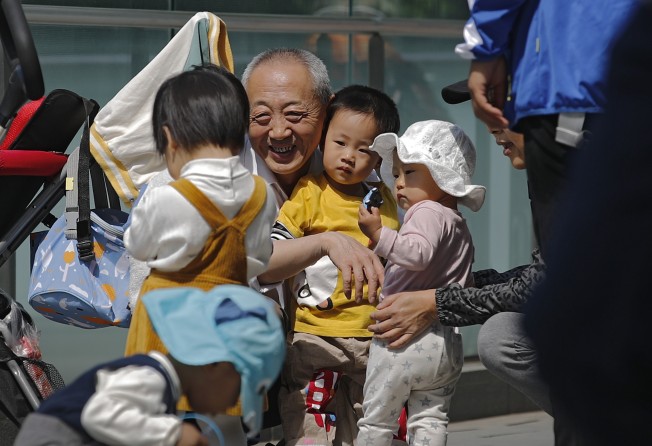
07:02
China tackles challenges posed by its ageing population

China’s demographic situation is worsening at an alarming rate, spelling trouble for the country’s economic prospects for decades to come.
While an ageing population and falling fertility rates are not unique to China, the country’s demographic changes are happening at a speed and scale unseen in any other country. It is partly a result of the ruthless implementation of the one-child policy that ran from the late 1970s to the early 2010s, a massive state-engineered project that Chinese authorities try very hard not to mention any more.
Based on the experiences of other countries, China would have faced an ageing population and falling births anyway, but the state’s involvement in “family planning” – which involved hefty fines and forced abortions – has only made the problem more severe.

07:02
China tackles challenges posed by its ageing population
The reality is that, as the provincial government of Anhui has admitted, China’s new birth rates are “falling off a cliff”. A growing number of Chinese scholars and economists are saying that 2021 will see the peak of the country’s population growth, even when citing China’s official data.
In other words, China will officially have more deaths than births for the first time this year. China’s shrinking population could last many decades before the trend reverses – if there’s any reversal at all.
The trend will have a far-reaching impact on everything in China – from Beijing’s ambitions of creating a powerful socialist country, to the sustainability of the property market and schooling system.
Beijing has sensed the seriousness of the problem, and responded by relaxing the child quota for couples from two to three this year, and scrapping punishments for any births outside the quota.
But Beijing doesn’t like candid discussions about the country’s population trend, even if they are true, labelling them as “bad mouthing” the country’s bright future. In early 2020, state media the People’s Daily listed the top 10 rumours for 2019 – one being an argument by renowned demographer Yi Fuxian that China’s population had peaked in 2018.
Research into the rapidly ageing population and plunging fertility rates in China is largely superficial, as many demographers were trained to justify China’s rigid birth controls. Thus, the debate has been more about how big the problem is instead of how to solve it.
As there’s been insufficient study on the issue, policy suggestions and proposals are limited, and sometimes lack common sense. For example, implementing a new “three-child” policy will not be very effective if the “two-child” policy already failed to boost new births. Couples won’t choose to have a “third” baby if they already chose not to have the “second” one.
China’s higher education system is also in need of overhaul. The education ministry said there will be over 10 million fresh graduates from colleges and universities in 2022, a number that will no doubt exceed new births for that year.
Does this mean every child born in China next year will almost have a 100 per cent chance of getting into college or university since there will be more seats available than applicants in the future?
Beijing needs to honestly face its new demographic reality and treat it as a serious crisis.